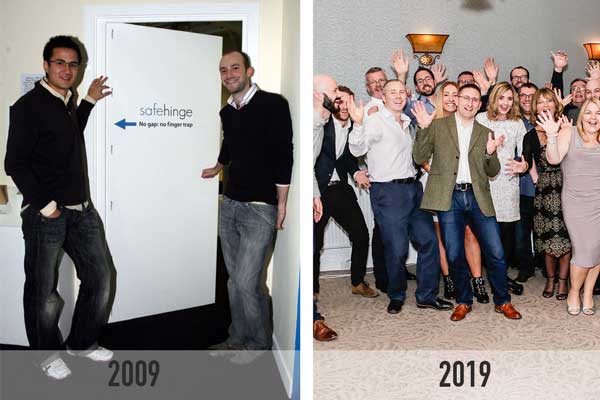
As a recent Royal Institute of British Architects (RIBA) study concluded that costs of £150 million could have been avoided if schools had been better, we calculated that they've saved Local Education Authorities around £20 million in life costs since launching our range of durable finger guards in 2009.
As the market leader in durable finger guards, we supply over 70% of LEAs across the UK, and deliver these cost savings through the robustness and durability of their finger guards in high traffic environments like schools.
Our flagship product Alumax, an integral finger guard, designs out the problem of fingers being trapped in the door hinge by using a rounded door heel that eliminates the dangerous gap between the door and frame. Compared to plastic finger guards, which typically crack every 1-2 years in primary schools, Alumax saves over £500 per door over the lifetime of the door.

For finger protection on existing or new hinged doors, we created Alumini, a surface-mounted product with a patented finger ejection system that makes it impossible to trap a finger. It uses a fabric section to enable 180 degree opening and ensures safety because it’s impossible to trap something round in a door hinge. The rounded back of the aluminium body floats in and out of the dangerous gap – preventing any fingers getting in harm’s way.
Specification assistance
LEAs often explain they cannot specify products or companies, however, we have worked closely with numerous authorities to help them make a small change to their Employer’s Requirements to include the term “integral” when referencing the need for finger guards.
Working closely with London Borough of Barking & Dagenham (LBBD), we first supplied our finger guards to them in 2012. Before using Safehinge products, LBBD were fed up with plastic finger guards, which broke frequently, looked unsightly and revealed the original hazard when cracked. They were looking for a something more suitable for their busy schools. With no British Standards or other independent testing, they struggled to specify a safe and robust finger guard within the constraints of the public sector tendering framework.
Safehinge co-founder, Philip Ross, explained: “We worked closely with their education services and design team to understand what problems they experienced with current finger guards and helped them create a generic specification for their Employers Requirements.”
LBBD now specify “integral finger guards” on their new build schools and major refurbishments.




